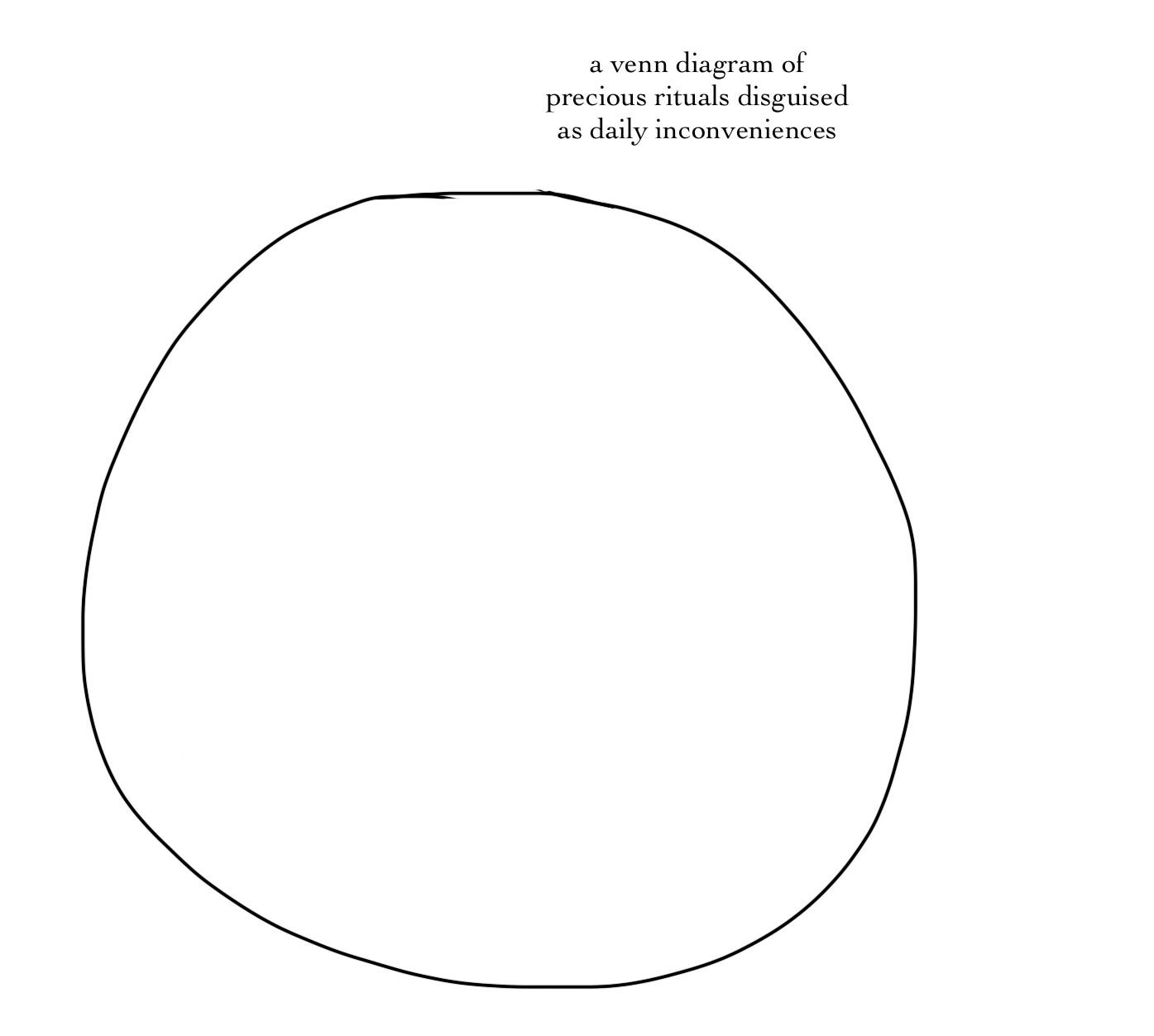Purple Rubber Gloves Have Good Bones
Believe it or not this is another rant about ChatGTP (but there’s whimsy involved)
You are a human.
Upon exiting the womb, you faced a daunting, crucial task: find a way to be understood. The only tools at your disposal were your pudgy limbs and your shrill, wet wails, which—after a deafening silence—you wielded expertly, innately. When you shrieked, the room sighed in relief and smiled.
Then, your legs learned to carry you, and your mouth learned to shape words. Yes and no. Please and thank you. You spent years asking, “Why?” to anyone who would listen, and with every answer, your arsenal of words expanded.
You stammered your way through presentations in high school. You practiced tongue twisters about Sally’s seashells and colorful leather. Adults told you that if you wanted to be taken seriously, you should stop saying um and like and literally. And you responded, “No, yeah. For sure.” Later, someone said orgasm instead of organism during class, and you giggled.
You got taller, smarter, sadder, stronger. You gasped and laughed and nodded and whispered and scrawled things on sticky notes. To better understand yourself, you took online quizzes that explained why you’re a Hufflepuff or a Slytherin, a Samantha or a Charlotte, an INFJ or an ESTJ, gay or not.
You learned how to make people laugh, which swear words are appropriate during a game of Scrabble and which ones are not; how to write professional emails, make someone blush, break someone’s heart. Say you’re sorry and mean it. When to listen and when to speak.
Communication is a muscle, and you’ve spent your whole life training it. This is paramount to your survival, and it always will be.
Every small discovery, every great revelation, every excruciating minute spent explaining the rules of a card game has helped you refine this skill. Through tongue twisters and tears and the very privilege of living, you’ve developed a voice that can’t be replicated.
So no, I don’t believe you when you say you’d rather let AI write your emails, tinder bios, wedding vows, or grocery lists. That you’d prefer to ask ChatGTP to name your kitten, generate topics for your newsletter, or come up with creative date ideas. That you’d gladly watch your ability to express yourself or think critically atrophy—so long as it saves you fifteen minutes.
Not only is AI drinking our water in greedy gulps and filing down the edges of our perfectly jagged speech patterns, but it’s also convincing us that vital skills like communication, brainstorming, and research aren’t worth our time.
But time spent is not necessarily time wasted; time saved is not always time gained.
A dishwasher saves time, and there are plenty of people this technology benefits, from the elderly to people with disabilities to busy parents. And in this context, yes, technology that eases the burden of this daily chore is great, even essential. Similarly, AI has the potential to aid in research and accelerate scientific discoveries, from sifting through enormous catalogs of chemical compounds to create new drugs to facilitating cross-disciplinary research.
But my apartment doesn’t have a dishwasher, and I’m young and able-bodied and childless, and I’ve found that pulling on my purple rubber gloves and scrubbing a sink full of dishes is a fine enough way to spend some of my time. My dish soap smells like lavender; the hot water warms my hands through my gloves. Sure, it takes a little time, a little energy; I’m so lucky to have both.
And, of course, sometimes water spills into my purple gloves, or a stubborn fleck of spaghetti sauce won’t budge no matter how hard I scrub.
And, of course, there will be more dishes in the sink tomorrow. There will be more emails to write, too. And more errands to run and friends to call and air to breathe and books to read.
What are we saving all this time for? In trying to escape the labor of the little things, we run from life altogether.
Dishwashers aren’t going anywhere, nor should they. The same can be said of AI. Eventually, I’ll live somewhere with a dishwasher again, but I won’t run the dishwasher every time I use a fork. I’m sure at some point, I’ll use AI to summarize a meeting or organize my notes, but I won’t pull up ChatGTP every time I need to send an email. Technology can make life easier, not live it for us.
We’re in such a hurry, so stimulated, so impatient; we’re convinced our lives are being stolen from us one ten-minute inconvenience at a time—drafting messages and doing dishes and the like. But if we pause, we might realize those bright, brief minutes are where our lives are being lived.








Loved it. I just posted about how ChatGPT plans my weekly dinners for me bc I'm truly braindead when it comes to that task - I've been sitting with the fine line between where AI alleviates mental burdens and where it erodes critical and creative thought. This was the perfect read!
Please don’t stop writing!